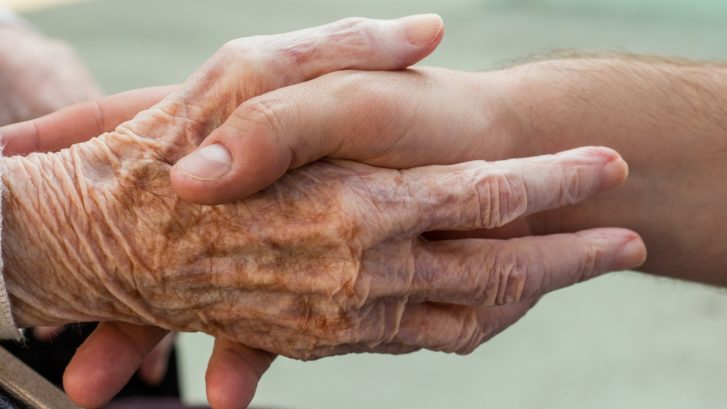Leviticus shows us today that leprosy rendered one unworthy to worship. Afflicted persons were totally ostracized, both socially and ritually. I have never seen lepers standing in rags announcing that they are unclean or untouchable, but I have seen individuals with AIDS whose family and friends refused to visit, let alone touch them. I have seen people with mental illness struggle to be accepted and respected.
Very often in our society, the aging are isolated, live alone, even shunned. Our lepers may be those who stand in front of us in the grocery line with food stamps or the undocumented whose entry into this country we resent as a free ride. There are those among us who know only too well that they are judged unclean or untouchable. Today’s lepers are quite aware that we resist standing near them. You see, we humans can be very cruel and we are capable of distancing ourselves from those we think unacceptable.
In today’s gospel, we see a simple compassionate, ritually defiant act of Jesus.
Ignoring the laws of ritual purity, He reaches out and touches: a healing touch and healing words… “Be Clean.”
Jesus was taking a great risk in reaching out to touch that man. He was breaking every rule in the book, both civil and religious. But compassion is not a cool-headed, calculated sort of response. Compassion makes Jesus step across the forbidden line of convention or law.
There was a great risk to Jesus in doing something as simple as touching the hand others avoided. Why did He touch? He could have healed him from a distance like He did with the ten lepers that Luke tells us about.
My guess is that He touched him because the man needed to be touched, needed to feel human contact, human kindness. It was a very human thing to do, and Jesus always humanized His religion, kept it in the thick of the everyday life of the people. Jesus swept away ancient taboos. His first concern was not law, but people; not religion, but life.
It may be relatively easy to identify who the lepers are for each of us. The question is, can we identify and acknowledge the unclean places within ourselves? These limitations or sins that discourage or embarrass us? Dare we touch that untouchable?
All of us at some time or another need to be like the leper and ask for healing because if we do not, there’s probably not much chance that we will have compassion for the flaws of others. We will soon enter the time of Lent, a time to strip away our pretenses and defenses and discover what lies beneath the layers of accumulated stuff.
And we might be prompted to, like the leper, approach the one whose touch can heal us and make us clean. Then we realize that we and the leper are one, and in that discovery, we might be willing to widen our circle to include all. Even those we like to keep at arm’s length, keep them outside of our camp, untouchable for whatever reason.
Perhaps this comes down to a fundamental question: what is a Christian? Someone who is baptized, who prays? Who asks forgiveness, who worships God? Yes, a Christian is all this and more.
Jesus told us what Christians are meant to be: You are the salt of the earth, you are the light of the world, you are the leaven in the bread. He also said, feed the hungry, visit the sick, the poor, the dying, because, you see, compassion is just another name for Christian.


